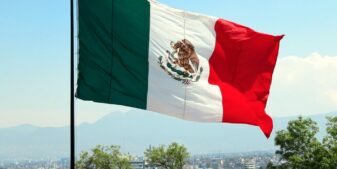Mexico could regulate online sports betting before it hosts next year’s World Cup.
The tournament will be staged across 16 cities in North America with the United States, Canada and Mexico co-hosting for the first time.
Earlier this month, AIEJA – the Association of Permit Holders, Operators and Suppliers of the Entertainment and Gambling Industry – repeated its call for the government to update the Federal Gaming and Lottery Law of 1947.
AIEJA is arguing that law designed nearly 80 years ago is no longer as relevant to our day-to-day lives as the industry has grown and developed significantly, with a main focus on sports betting apps and online platforms.
The bill has barely changed since it was introduced, leaving gaps in regulation and offshore sportsbooks have since targeted Mexican residents – depriving the state of lucrative tax revenue. It also enables ambiguous legal practices, corruption and tax evasion.
AIEJA has requested industry operators be involved in the development of new regulations to make sure they are practical and enforceable. The World Cup presents an opportunity for great advancement in the Mexican gambling world.
Casinos do exist in Mexico, and earlier this year the country’s finance minister Édgar Amador shocked the industry with a proposal to raise taxes on casinos as part of Mexico’s 2026 Economic Package.
It is set to alter the Special Tax on Production and Services (IEPS) applied to gambling and lottery games, lifting the rate from the current 30% to 50% of gross gaming revenue (GGR).
The current Gaming and Lottery Law has proven insufficient to address the rapid evolution of the gaming industry since the 1940s. It needs to keep up with technological advancements, the rise of the online world and expansion of in-person venues.
Gambling reform in Mexico will ensure its betting sector will thrive alongside the tournament, offering structured growth and vital economic opportunities.

